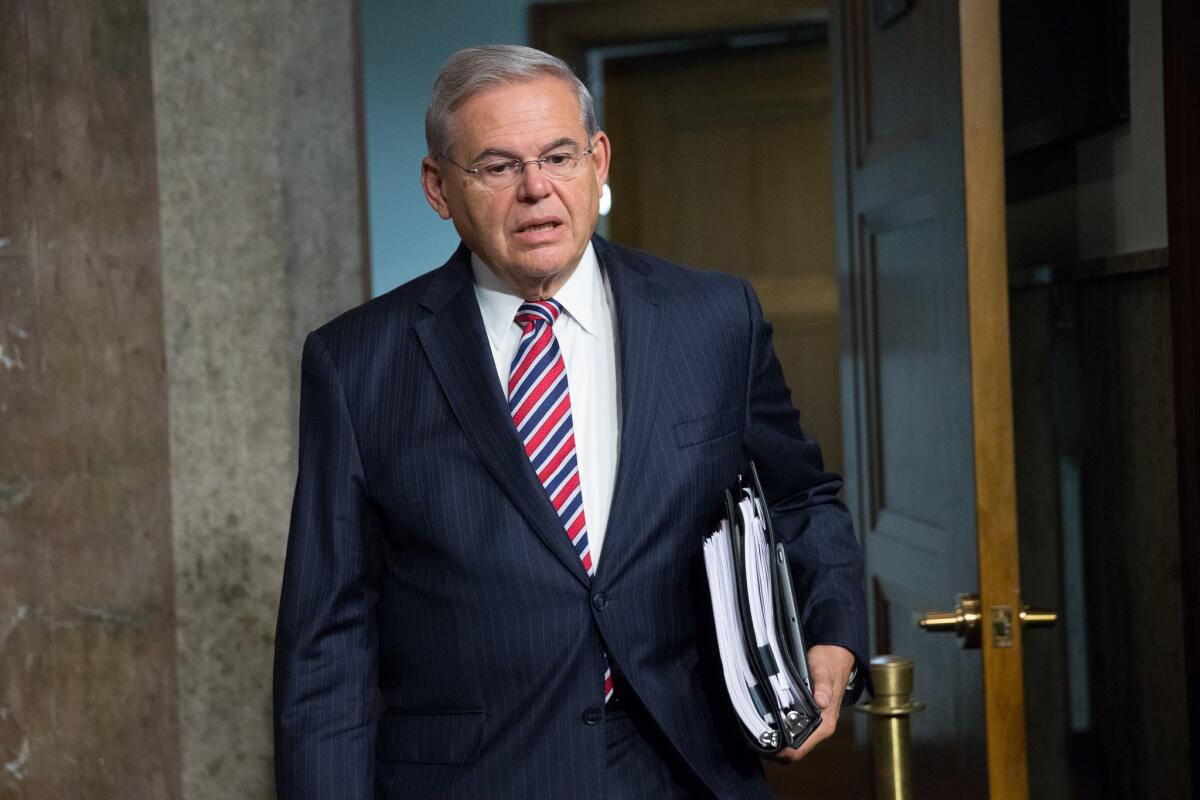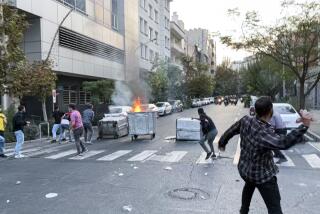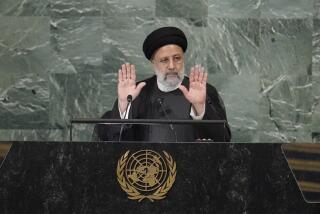Critics of Iran nuclear deal allege secret side agreements

Sen. Bob Menendez arrives for a Senate Foreign Relations Committee hearing on the Iran nuclear agreement on July 23, 2015.
- Share via
Reporting from Washington — Congressional critics of the nuclear deal with Iran have opened a new front in their battle with the Obama administration, demanding the release of secret details of Iran’s agreement with the United Nations’ nuclear agency.
The side agreements between Iran and the International Atomic Energy Agency are fatally weak, the critics say.
The IAEA has worked out the agreements in an effort to resolve its investigation of how much research on nuclear weapons Iran has conducted. Under standard IAEA procedures, such agreements are secret.
One of the agreements lays out specific steps the IAEA wants Iran to take to help answer its longstanding questions over Iran’s suspected past military work.
The other details how the IAEA and Iran will gather information from the Parchin military base, where important parts of the research allegedly took place.
Skeptical lawmakers contend that the IAEA has agreed that its inspectors don’t need to enter the top-secret Parchin base, but can rely on Iranian officials to take environmental samples that the IAEA would then test to determine whether Iran conducted illicit weapons research.
Lawmakers have expressed outrage over this purported agreement. Sen. Bob Menendez (D-N.J), a critic of the administration’s negotiations with Iran, said at a Senate hearing on Thursday that it was “the equivalent of the fox guarding the chicken coop.”
The IAEA’s investigation of the so-called “possible military dimension” of Iran’s nuclear program has been stalemated for years. But with Iran now pledging increased cooperation, the IAEA is trying to conclude the inquiry by December.
Lawmakers of both parties are pressing for disclosure of the two agreements. Sen. Bob Corker (R-Tenn.), chairman of the Senate Foreign Relations Committee, is warning that unless the administration discloses the details, he may seek to increase the amount of time Congress will take to consider its response to the deal.
Administration officials contend that the agreements the IAEA has made with Iran are properly confidential. Under long-standing IAEA procedures, agreements between the IAEA and a country under investigation remain private to encourage countries to cooperate.
“These kinds of technical arrangements with the IAEA are a matter of standard practice, and they’re not released publicly or to other states,” John Kirby, the chief State Department spokesman, said Wednesday. But he said that administration experts “are familiar and comfortable with the contents” and willing to discuss them with Congress in a classified setting.
Mark Dubowitz of the Foundation for the Defense of Democracies, an opponent of the deal, said the agreement on Parchin would set a dangerous precedent that would encourage countries to demand that they be able to conduct their own investigative tests for the agency.
Kelsey Davenport, of the Arms Control Assn., which favors the deal, said the dangerous precedent would be set if the agency broke confidentiality rules and disclosed details of its agreement. Such a step would make countries reluctant to cooperate with investigations, she said.
Secretary of State John F. Kerry, asked about the Parchin agreement at the Senate hearing, appeared to be hinting that the lawmakers were seeking to make public details they had learned in closed session.
“It’s supposed to be discussed in a classified setting,” Kerry told Menendez at Thursday’s hearing. “I’m not confirming how it’s happening. I’m simply saying that we’re confident the IAEA has the ability to be able to get the answers they need.”
Corker said the arrangement was like asking professional athletes to “mail in their own urine samples.”
For more on the Iran debate follow @richtpau
More to Read
Sign up for Essential California
The most important California stories and recommendations in your inbox every morning.
You may occasionally receive promotional content from the Los Angeles Times.











